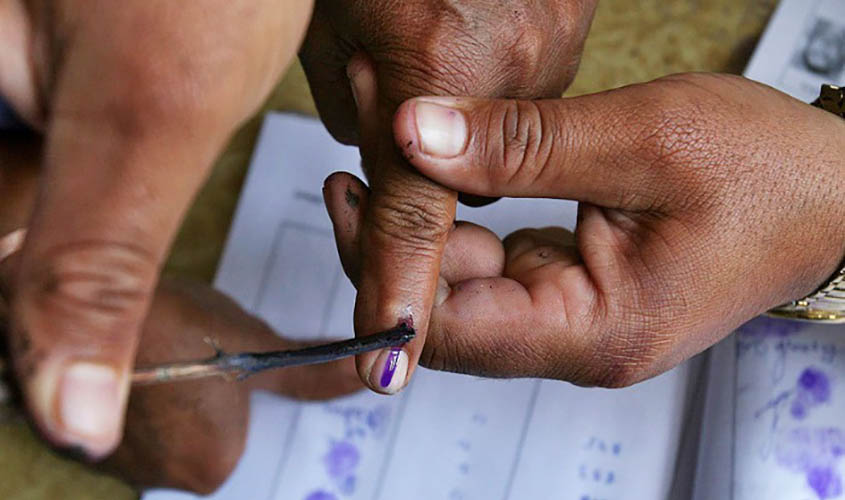Now that the elections to the 17th Lok Sabha have been declared, the next two months will be spent in intense electioneering by the political parties. The elections may be a celebration of democracy, marking a smooth transition from one Lok Sabha to another, but there is no escaping the fact that the run-up to the polls will be pockmarked by abrasive, hostile, uncivilised and anything but the “model” behaviour and discourse demanded by the Election Commission’s code of conduct. The dark underbelly of Indian politics will become all the more visible in this poll season, and the first victim of this phenomenon will be the model code of conduct. The code of conduct may be directed towards ensuring a level playing field to all those participating in the electoral process, but some candidates will get the unfair advantage over their rivals by simply buying their mandate. Sometimes, even a measly liquor bottle can be the price of a vote, or a Rs 500 note. And all parties are guilty of this misconduct, without exception. In certain states, candidates negotiate with the panchayat the price for a whole village—a sum that can run into even lakhs of rupees. In fact, why just the voters, even candidates and crowds for rallies can be bought in an Indian election, and no number of check posts set up on highways by the Election Commission of India (ECI), or surprise raids in godowns storing liquor bottles can staunch the flow of cash, alcohol or other forms of inducement that miraculously find their way into the voters’ hands despite the most stringent checks. This phenomenon could be an election killer, but the saving grace is that the enormity of the problem is drowned by the enormity of the numbers involved in an Indian election—for a certain number of voters bribed, there will be thousand times that number who will exercise their franchise freely, without being induced to do so. Here it must be mentioned that at best, the ECI can try to enforce the rule of law to stem the corruption of the electoral process, but it will never be successful until and unless the political parties themselves arrive at the consensus that they cannot allow this to continue, for it amounts to a mockery of the democratic process. In this context, the promise of, or showering of, freebies in the form of household goods, etc, on voters, although legal, is actually a grey area which the ECI needs to look into.
Even otherwise the ECI needs to update its rulebook and revise its numbers regularly when fixing amounts that candidates can spend when fighting elections. The Lok Sabha elections in particular are larger than life events and the gap between the amount fixed by the ECI and the amount spent by candidates is so humungous that all political parties end up fudging the figures, apart from finding loopholes whereby they can dodge the ECI accusation of “excessive” spending. The amounts fixed must be realistic and must reflect inflationary trends. Indian elections are an industry in themselves. The Lok Sabha elections this year are billed to be the most expensive ever. But a large part of the revenue this “sector” will generate will become a part of the “black economy” unless the numbers fixed by the ECI take into account what actually transpires on the ground.
Another area of concern is the time it is taking to hold the elections. The whole Lok Sabha election process is spread out over two and a half months, from the day of announcement of elections, 10 March to the day of counting, 23 May. In this period, the model code of conduct is in place, which, in other words, means that government work is on hold, all policy decisions are on the back burner and even states cannot make any major policy announcements. In short, governments across the country might as well be on holiday. However humungous the polling exercise, the ECI must find means to expedite the process. A country like India cannot afford to be in a state of limbo just because the elections are here.
As for the political parties, even as they bicker with each other while on the campaign trail, will it be too much to expect some civility from them? Even political enmity is acceptable, but not crassness. Sometimes the rapier thrust of the wit does a better job of demolishing an opponent than using foul language. Lest they forget, the voters are watching their every move. There already exists among the public a great deal of scepticism about the political class. In spite of that they come out to vote in election after election because they believe in the democracy that is India. But that does not mean that politicians should take them for granted, for the Indian voter understands the power of the EVM button, pressing which can seal the fate of the political class. The least the voters can expect from the political class is model conduct even amid the hurly-burly of the election season.

